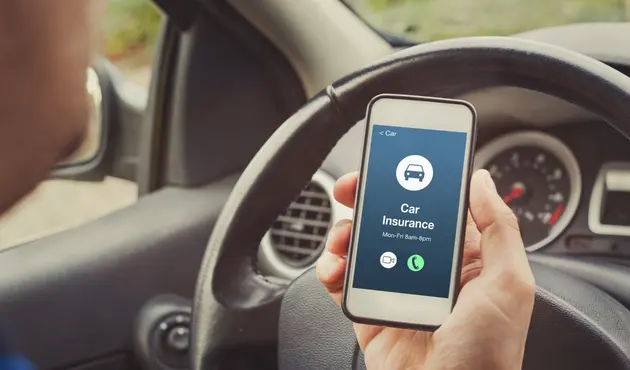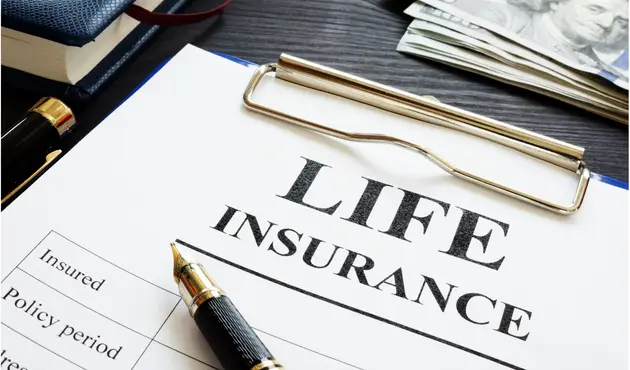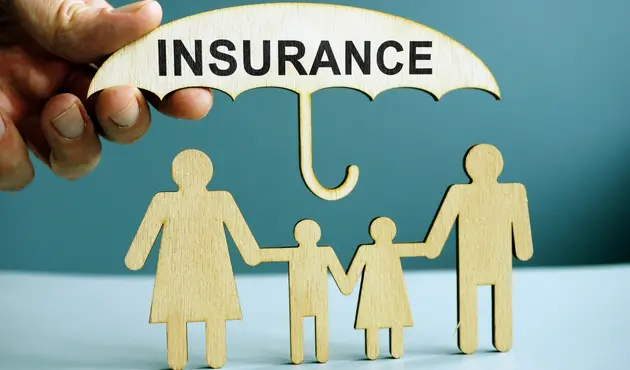
The Most Common Insurance Scams In The UK
There are many different insurance scams that take place in the UK, but there are some that are more common than others.
It is alleged that the increase in insurance fraud may also have been linked to the COVID-19 situation, where many people were concerned about their health and their family's future. Many fraudsters took advantage of this.
Insurance scams in numbers
Last year, Aviva UK experienced an increase of 13% in fraudulent claims across several insurance segments, such as motor, home, and liability.
According to a recent report by Aviva UK, insurance fraud is on the rise in the UK. The report estimates that there were 11,000 fraudulent claims made in 2021, totalling over £122 million. This is equivalent to over 30 bogus claims being made each day, with each claim averaging £336,246. These numbers are likely even higher as the insurer is still investigating another 16,700 claims suspected of fraud.
Zurich UK has also seen an increase in insurance fraud, with £40,000 worth of fraud being prevented each day. In the first five months of 2021 alone, Zurich UK prevented fraud totalling £42 million.
Types of insurance fraud

Property claim
A recent study by Zurich UK found that £8.4 million worth of property fraud claims were made last year. The number of claims rejected due to fraud also increased from 394 to 473 – a 20% rise. High-value jewellery, mobile phones, and TVs were among the most common items claimed to be lost or stolen by fraudsters. The average value of a claim was £8,800.
In 2021, 13% of all fraudulent claims discovered by Aviva UK were in home insurance. Incidents have increased 45 percent from 2020, the greatest increase in seven years. Fake claims for accidental damage, loss, and theft are the most frequent forms of fraud discovered. The average value for a fraudulent household insurance claim was £3,645.
Ghost broking
This is where people set up fake insurance companies and then sell policies to unsuspecting victims. These fake companies often disappear overnight, leaving their customers out of pocket and without cover. They often target young drivers who may be struggling to find affordable cover. The scammer will take your money and disappear, leaving you uninsured and at risk of hefty fines if you're caught driving without valid cover.
The number of ghost broking cases reported to the UK's National Reporting Centre for Fraud and Cybercrime, which handles fraud and cybercrime complaints, increased from 517 in 2021 to 632 in 2022. The agency acknowledged that the figures were most likely higher since not everyone who buys a fraudulent policy is aware of it.
Fronting
This is where people take out insurance in their own name when they are actually intending to insure someone else, such as a child or spouse. This can lead to problems if a claim needs to be made, as the insurer may refuse to pay out.
Mis-selling
This is where people are sold insurance products that they do not need, or that are not suitable for their needs. This can often happen when people are pressured into buying insurance products, or when they are given misleading information about what the product will cover.
Property damage
Fraudsters will sometimes commit insurance fraud by deliberately damaging their own property - whether it's breaking windows or starting a fire - in order to make an insurance claim. They may do this by vandalizing their own car or smashing windows in their home. This type of scam is difficult to detect because there is usually no witnesses and the damages can be hard to prove were not caused by an accident.
False burglary claims
Some people will falsely report a break-in at their home, in order to collect on their home insurance policy. This is not only dishonest, but it also wastes valuable police time and resources.
Ghost businesses
This type of scam usually involves setting up a fake business in order to take out multiple insurance policies and then making false claims on them. This can be a costly scam for insurers to deal with.
"Crash for cash"
This is one of the most common car insurance scams . This involves deliberately causing an accident so that you can make a false claim on your insurance. This not only puts you at risk of being injured yourself, but also means that honest motorists have to pay higher premiums as a result of the increased risk. If you're involved in an accident that you didn't cause, make sure you get the other driver's details and contact the police so they can investigate. Car insurance scam is one of the most common and one of the most dangerous, so be careful and protect yourself.
Liability claims
We are talking about liability claims are one of the most common insurance scams. This is when someone makes a false claim against you, alleging that you are responsible for their injuries or damages. Often, these claims are made by people who know that you have insurance and are hoping to cash in on a settlement.
Personal injury claims
Personal injury claims are one of the most common insurance scams. Many people think that they can just file a claim and get money for their injuries, but this is not always the case.
The Association of British Insurers' data suggests that whiplash is one of the most common personal injuries Brits claim compensation for, with more than 1,500 claims made in the UK daily. This costs insurers over £2 billion yearly and adds an average of £90 to annual motor insurance premiums per driver.
What are insurance companies doing to prevent fraud?
There are a few things insurance companies can do to help prevent fraud. One is to use data analytics to look for red flags that might indicate fraudulent activity. Insurance companies can also require more documentation from policyholders when they make claims. And finally, insurance companies can work with law enforcement to investigate and prosecute cases of insurance fraud.
The insurance industry is no stranger to fraud, with false claims costing insurers and policyholders billions of dollars every year. To help combat this problem, the industry has collaborated with different organizations to develop measures for detecting fraudulent activity. These include the Insurance Fraud Bureau (IFB), the Insurance Fraud Enforcement Department (IFED), and the Insurance Fraud Register (IFR). In addition, insurers have their own mechanisms for understanding and mitigating their exposure to fraud. By being aware of these common scams and taking steps to prevent them, you can help protect yourself and your loved ones from becoming victims.
Technology is playing an increasingly important role in the fight against insurance fraud. Insurers are using artificial intelligence tools to quickly adapt to new circumstances and constantly evolving and sophisticated fraud. Tracking devices and cameras are other crucial weapons in the fight against fraud. These enable insurers to gather invaluable data, for example, telematics and dashcams in motor insurance. Drone technology and geospatial platforms, such as Google Earth, can also be used to assess flood damage where a property can’t easily be accessed.
Zurich UK is one of the insurance companies that are using technology to fight insurance fraud. The firm has invested in new NetReveal software, which uses algorithms and data analytics to detect fraudulent individuals who try to disguise their identity by providing fake name or address information. In addition, the company plans to introduce real-time fraud checks at the time a claim is filed on the insurer's systems.
Are life insurance companies safe?

Yes, you may do this securely with a reputable life insurance company that provides excellent customer care. It's critical that you contact a real business and never impersonate them. Life insurers are well-versed in manipulating individuals. Most businesses provide suggestions on how to spot a website ad-based scam. Furthermore, they have the ability to inform other people about specific types of scams that are emerging.
How to spot a life insurance scam?
If you're thinking about buying life insurance, it's important to be aware of the potential for scams. While there are many reputable life insurance companies and agents out there, there are also some unscrupulous individuals who may try to take advantage of consumers. Here are a few tips to help you spot a life insurance scam:
-One red flag that may indicate a scam is if an agent or company tries to sell you a policy without first doing a needs analysis. A legitimate agent will want to learn about your financial situation and goals before recommending a particular product.
-Beware of anyone who pressures you to buy a policy on the spot or who seems more interested in making a sale than in helping you find the right coverage.
-It's also important to be cautious of agents who claim that a particular life insurance policy is guaranteed to earn a high rate of return. No investment is risk-free, so be sure to get all the facts before making any decisions.
What can you do to protect yourself against insurance fraud?

Scammers will often target people who they think are vulnerable, such as the elderly or those with language barriers. They may also try to take advantage of people who are in a hurry or who are not well-informed about insurance products. Here are some tips to help you avoid being a victim of an insurance scam:
Be suspicious of unsolicited offers of insurance, especially if the person offering the coverage is not from a reputable company.
Don't be pressured into buying insurance on the spot. Take your time to research the company and the policy before making any decisions.
Beware of anyone who tries to sell you an insurance policy that seems too good to be true. If the premium is significantly lower than what you would normally pay, it's probably a scam.
Never give out your personal or financial information and bank details to someone you don't know and trust. This includes your National Insurance Number, credit card number, or bank account information.
Don't give out personal details to anyone who contacts you out of the blue, even if they say they're from your insurance company.
If you're contacted about a claim, don't give out any money until you've verified that it's legitimate.
And if you think you might be a victim of insurance fraud, contact your state's insurance department or the Action Fraud. They can help you figure out what to do next.
It's up to each of us to be vigilant about protecting ourselves from scams.
What to do if you were a victim of insurance scam?

If you think you have been the victim of an insurance scam, then you should report it to the Financial Conduct Authority (FCA). You can do this online at their website or by calling them on 0800 111 6768.
If you have provided personal details or bank details to someone over the phone and you now believe this to be a scam, report it to Action Fraud at www.actionfraud.police.uk or by calling 0300 123 2040. If you have made any payment contact your bank or credit card company immediately.
Remember to spread the word about scams to your friends, especially older people - parents, grandparents and neighbours. They are the most vulnerable to fraud. The threat is real, but by spreading awareness we can curb their activities.

There has been a sharp increase in reports of insurance scams in recent years, with ghost brokers and mis-selling being the most common complaints. If you're thinking about taking out an insurance policy, be sure to do your research first and only deal with reputable companies. And if you think you may have been the victim of a scam, don't hesitate to report it.
Have you ever been the victim of an insurance scam? Share your story in the comments below.